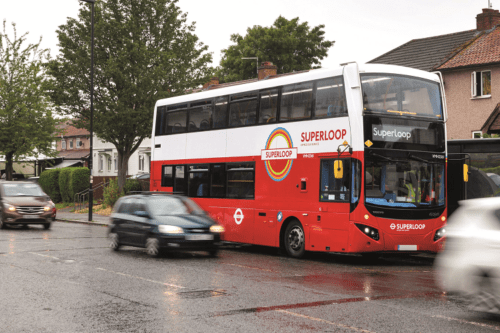
Considering all the hard work going on in London and elsewhere to introduce buses which are emission-free at the point of use, we couldn’t help but raise an eyebrow at an email concerning another transport sector which landed in CBW’s inbox, sent on behalf of Howard Cox, the Reform UK London Mayoral Candidate, Founder of the FairFuelUK Campaign and the Secretary to the APPG for Fair Fuel for Motorists and Hauliers. It concerned the case of London scaffolding company owner Noel Willcox, who had won ‘a court ruling’ that low emission zone signs in London, and by inference ULEZ signs, ‘are not lawful.’
“The central issue in his appeal against fines for his commercial vehicles entering LEZs is whether the Low Emission Zone signs are authorised and provide adequate information as to the Low Emission Zone Scheme,” the email reads, going on to explain that independent tribunal that decides appeals against congestion charging penalties and low emission zone penalties in London heard Mr Willcox’s appeal. Adjudicator Graeme Wallington ruled: “I accept the Appellant’s submissions that if the signs are not authorised and do not provide adequate information of the charging scheme then no charge or penalty is payable. Despite having adjourned this appeal to allow TfL the opportunity to submit evidence upon these points, TfL produced no evidence as to either the Low Emission Zone signs being compliant with the Traffic Signs Regulations and General Directions 2016 nor the Traffic Signs Manual or that the signs are otherwise authorised as Non-Standard Traffic Signs or as to the adequacy of the information contained on the signs. In these circumstances, I cannot be satisfied that the Low Emission Zone signs are authorised and lawful.”
[…]By subscribing you will benefit from:
- Operator & Supplier Profiles
- Face-to-Face Interviews
- Lastest News
- Test Drives and Reviews
- Legal Updates
- Route Focus
- Industry Insider Opinions
- Passenger Perspective
- Vehicle Launches
- and much more!


